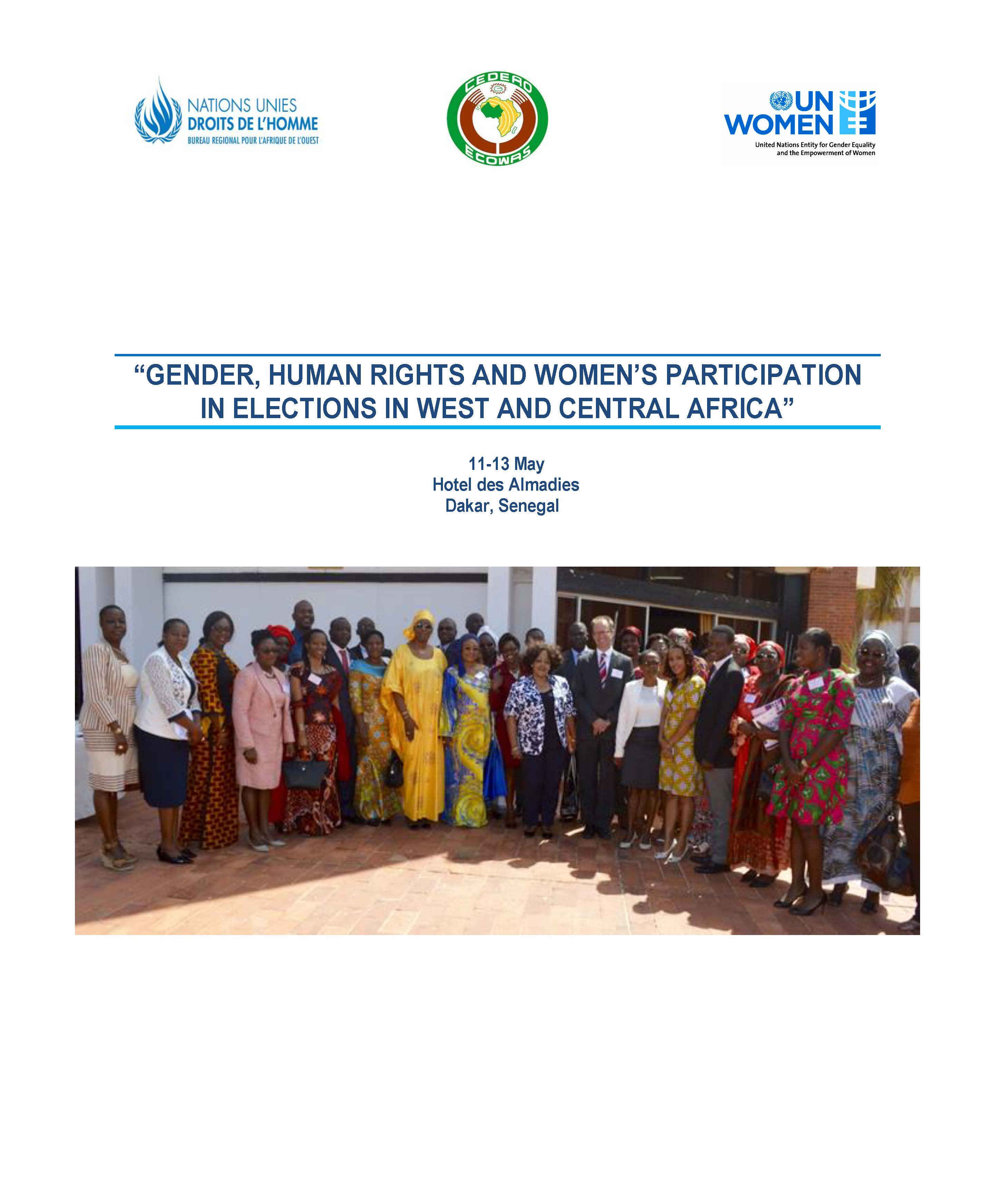
Gender, Human Rights and Women's Participation in Elections in West and Central Africa

A regional workshop on the theme of “Gender, Human Rights and Women’s Participation in Elections” in West and Central Africa was held in Dakar, Senegal from 11-13 May 2016 under the auspices of UN Women and the Office of the High Commissioner for Human Rights (OHCHR), in collaboration with the Economic Community of West African States (ECOWAS). The workshop convened over 40 participants from 15 countries1 in the West and Central Africa regions that had recently organized or are preparing for elections in 2017 and 2018. The participants, with the majority being women, including women former presidential candidates from Burkina Faso, Côte d’Ivoire and Niger, were drawn from Electoral Management Bodies EMBs), National Human Rights Institutions (NHRI), Political Parties (PP) and Civil Society Organizations (CSOs).
The overall objective of the three-day workshop was to take stock of women’s participation in elections in both regions in recent years and facilitate knowledge sharing, the compilation of good practices and to develop joint strategies on ways to improve women’s leadership in political governance. The outcomes of the workshop were also designed to contribute towards updating and shaping the programmes and strategies undertaken by UN Women, OHCHR, and ECOWAS to promote women’s political leadership in the regions, as well as encourage gender mainstreaming in electoral processes in the countries of West and Central Africa.
The workshop covered four broad thematic areas: Human Rights and Elections, Electoral Management Bodies (EMBs), Political Parties and Women’s Access to Resources for Elections. These thematic areas were selected to provide a holistic view on the challenges and opportunities facing women’s participation in political governance. It is evident that in spite of women’s significant numbers as voters in West and Central African countries, they are still largely under-represented as political leaders and elected officials. Countries such as Benin, Burkina Faso, Central African Republic, Côte d’Ivoire, Ghana, The Gambia, Mali, Nigeria, and Republic of Congo have less than 11 percent women in parliament as of February 2016, according to data from the Inter-Parliamentary Union (IPU). In the last rounds of legislative elections in 2015, women’s representation was a meager 7.2 percent in Benin, 9.4 percent in Burkina Faso and 5.6 percent in Nigeria.
The workshop made several recommendations for actions that will aid in promoting and improving women’s participation in governance and politics as well as their representation in political leadership.